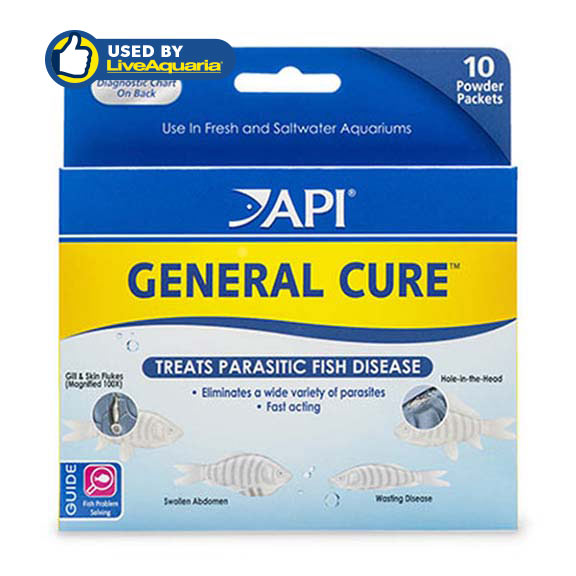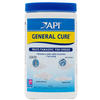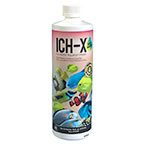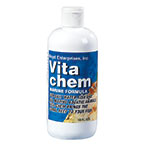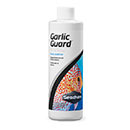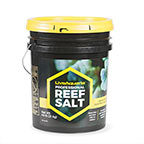Additional sizes may be available!
Additional sizes may be available! Email me when availableOverview
| * | Treatment for a wide variety of parasitic aquarium fish diseases |
| * | Effective fish medication for use with fresh and saltwater aquariums |
| * | Use to treat velvet, fish lice, hexamita, as well as gill and skin flukes |
Easy-to-use fish medication contains metronidazole and praziquantel in quick-dissolve powder form. Treats a wide variety of parasitic diseases - including hole-in-the-head disease and gill and skin flukes. Will not color water. For use in both freshwater and saltwater aquariums. Each packet doses 10 gallons. Economical 850 gram bulk jar doses up to 3,270 gallons and includes a 1 tsp scoop.
Active Ingredients: 250 mg Metronidazole and 75 mg Praziquantel per packet.
Directions for Use: For best results, remove activated carbon or filter cartridge from filter and continue aeration. For each 10 gallons (38 L) of water, empty one packet directly into aquarium. Repeat dose after 48 hours. Wait another 48 hours then change 25% of the aquarium water and add fresh activated carbon or replace filter cartridge.
| Diagnostic Chart | |
| Gill & Skin Flukes: | Very common fish parasites. Can be found on the gills, scales or skin. Not visible without the aid of magnification. Symptoms may include: darkening of skin, clamped fins, excess mucous. Fish may also swim erratically or become emaciated. |
| Hole-in-the-Head Disease: | Symptoms include pitting and erosion of skin and muscle tissue around the face and side of body. Many infected fish exhibit poor appetite, weight loss and nervousness |
| Waisting Disease: | Fish parasites transmitted from fish to fish cause emaciation, anemia and lethargy. Tissue damage leading to subsequent ulceration of the gastrointestinal tract. Excess mucus and white stringy feces are often produced as a result of parasitic invasion. |
| Swollen Abdomen: | Fish infected with tapeworms (cestodes), often have an extended or swollen abdomen. Internal area of attachment results in damaged tissue. Fish normally show signs of reduction in growth and general malaise. |


